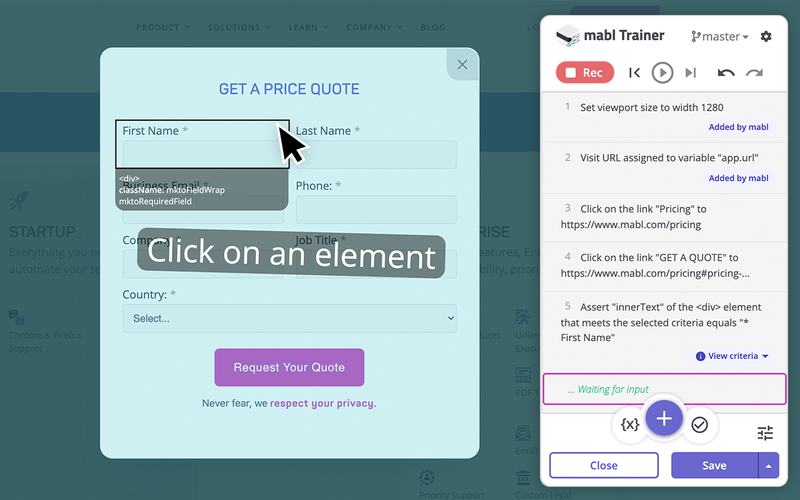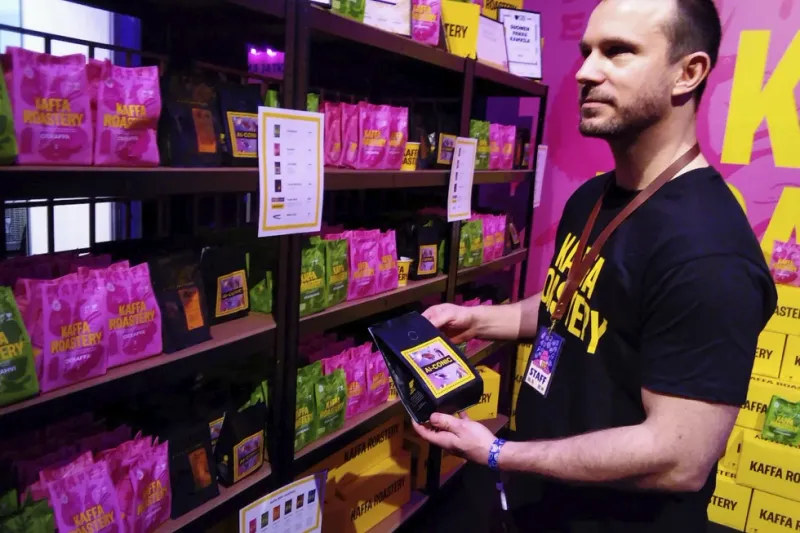This Week in AI: March 10-16
Jan Koum's Newlands VC leads $10M investment into SuperAGI; Apple quietly bought DarwinAI to compete in the gen AI race; Databricks announces a partnership with Mistral AI; Zendesk confirms the acquisition of Ultimate; OpenAI partners with Le Monde and Prisa Media
Every weekend, we bring together a selection of the week's most relevant headlines on AI. Each weekly selection covers startups, market trends, regulation, debates, technology, and other trending topics in the industry.
Jan Koum's Newlands VC is leading a $10M investment into agentic model startup SuperAGI
The investment in the SuperAGI Series A is one of the few occasions where Newlands VC publicly funds a startup. SuperAGI will use the funding to boost its research and develop software and middleware solutions that diversify the range of use cases for generative AI. SuperAGI focuses its research on agentic models and autonomous agents, with the former poised to become the successors of large language models in the generative AI and artificial general intelligence (AGI) races. SuperAGI's most noteworthy solutions include Contlo, an all-in-one marketing campaign and automation tool, and Verk, an AI employee who can undertake roles such as sales representative, social media manager, or market researcher. Moreover, the startup has open-sourced SAM-7B, a small agentic model, and VEagle, a vision model. SAM-7B allegedly outperforms Microsoft Orca-2 and OpenAI GPT-3.5 in reasoning benchmarks, while VEagle enables autonomous agents to work directly with user interfaces instead of connecting to third-party APIs. The Series A attracted investments from dominant tech companies Meta and Apple and the participation from existing investor Kae Capital. Additionally, thousands of developers in companies including Microsoft, Google, and Tencent already leverage SuperAGI's tools.
Apple quietly bought Canadian startup DarwinAI as it gears up to compete in the generative AI race
A report confirms that the deal took place earlier this year. As a result, several DarwinAI employees now work at Apple's AI division. This includes DarwinAI co-founder and University of Waterloo AI researcher Alexander Wong, who joined Apple as an AI division director. DarwinAI is best known for a computer vision solution automating the visual quality inspection of printed circuit boards (PCBs). However, DarwinAI also marketed a technique devised by Wong to analyze neural networks and generate a family of smaller, faster, and performance-preserving networks under the Generative Synthesis name. Apple is reportedly looking for ways to optimize LLMs so they run on limited-memory devices. Thus, it makes sense that the company would reach for a solution like Generative Synthesis. Apple's internal operations have relied on generative AI for some time now, with reports suggesting that the company is readying itself to incorporate generative AI-powered functions into most of its software, including a coding assistant embedded into the Xcode programming software.
Zscaler has acquired Avalor and plans to incorporate Avalor's Data Fabric for Security into its cloud security platform
Zscaler became an industry leader due to its massive Zscaler Zero Trust Exchange dataset. The extensive dataset was built from the daily transactions at the Zscaler cloud security platform and is leveraged by Zscaler's AI-powered solutions, including Zscaler Risk360 and Zscaler Business Insights. Avalor's Data Fabric for Security will extend the Zscaler dataset to enable customer enterprises to leverage over 150 pre-built integrations from Avalor's Data Fabric within the Zscaler cloud security platform. The Avalor Data Fabric integrations include customizable prioritization, real-time incident mitigation, advanced threat detection, and many other actionable insights and analytics. The Avalor Data Fabric for Security will allow Zscaler to enhance its capabilities and create new cybersecurity solutions.
Databricks announces a partnership with Mistral AI and welcomes the company to the Databricks Ventures portfolio
According to Databricks, over 1000 enterprises already use the Databricks platform to harness the capabilities of the Mistral models, which have been used to perform millions of inferences. Thus, the native integrations of Mistral 7B and Mixtral 8x7B will make it even easier for users to leverage these two models within Databricks. The models are now discoverable in the Databricks Marketplace and can be accessed via the Mosaic AI Foundation Model APIs. Mosaic AI also allows customization for the Mistral models and quick experimentation with pre-trained and fine-tuned Mistral models using the Mosaic AI Playground in the Databricks console. With this announcement, Databricks has become the second company to announce its investment in the Mistral AI Series A.
Tavus announces the availability of Phoenix and the Tavus Developer Platform in public beta
The launch of the products' public beta stage follows the announcement of Tavus' $18 million Series A funding, led by Scale Venture Partners, Sequoia Capital, Y Combinator, HubSpot, and other investors. Phoenix is a tool that enables end-users to create realistic talking head videos of themselves from a script. The videos include natural facial movements, expressions synchronized to the script, and generated voices. Phoenix creates user replicas by constructing 3D facial scenes using neural radiance fields (NeRFs). The model and APIs feature several safety checks that prevent users from creating videos of anyone other than themselves. The Developer Platform will make Tavus' APIs available to developers and enterprise teams. The first API to be released in public beta is the Replica API, which enables users to create replicas of themselves from two minutes of training video. The Lip Sync, Dubbing, and Video Campaign APIs will be available soon.
Frontnow closes its extended seed round after raising €3.8M to accelerate its e-commerce solutions
The funding round was led by Peak, with PROfounders Capital and Identity Ventures as participants. Frontnow will use the funds to expand its market presence and consolidate its status as an industry leader. Frontnow's solution portfolio includes Frontnow Advisor, a virtual shopping assistant, and Frontnow Enhance, a tool for product description optimization. Using a combination of algorithms and LLMs, Frontnow Advisor delivers enhanced customer advice that includes personalized recommendations and engaging interactions. Frontnow Advisor is best seen as an always-available, multilingual extension of the personal shopping experience to the online realm. Frontnow Enhance improves product descriptions by performing tasks such as cleansing, enriching, and adding contextual meaning to the available data with one click. Enhance produces SEO-optimized content that improves rankings, increases traffic, and boosts revenue. Frontnow's tools leverage self-learning algorithms to continuously increase the value delivered to its customers and improve the online shopping experience.
An agreement between Mercedes-Benz and Apptronik will bring humanoid robots to Mercedes' manufacturing facilities
The companies will jointly explore potential use cases for the Apollo robots in the logistics of the manufacturing process. The Apollo humanoid robots are optimized to work in spaces meant for humans, so the driving idea behind the partnership is to allow Mercedes-Benz to deploy the humanoid robots without having to redesign its facilities to accommodate the robotic workers. Once in place, the Apollo humanoids will perform physically demanding, repetitive, and dull tasks that might be better suited for a robotic than a human worker. In addition to having a human-like form factor – Apollo robots are 5 foot 8 inches tall, weigh 160 pounds, and can lift about 55 pounds – the Apollo humanoid robots feature a force control architecture that ensures safe operation around people. Moreover, the humanoid robots are compatible with third-party solutions, meaning other leading AI companies can leverage Apollo's computing power to solve use cases not covered by Apptronik.
Invoke Workflows accelerates game development using next-level enterprise AI
Invoke Workflows is a set of enterprise AI-based tools that enables less tech-savvy team members in game development studios to leverage and profit from popular open-source image generation models. Invoke Workflows is easily deployed, grants its users fine-grained levels of control of the production process, safeguards the studio's intellectual property from safety breaches, ensures that all of the produced assets are aligned with the game's brand guidelines and intellectual property, and maintains a level of flexibility in content creation that is unavailable in consumer-ready solutions. With Workflows, Invoke wants to lower the barrier to entry for generative AI applications in game development that maximize the talent and capabilities of human teams. This mission is part of a general commitment to developing an "innovative platform that respects both the artistic integrity and operational needs of game developers worldwide."
Zendesk confirms the acquisition of Ultimate
Ultimate is an industry-leading service automation provider whose agents can automate up to 80% of the service requests they receive. Ultimate's agents can leverage private knowledge bases and offer flexible customization options to yield a wide range of applicable use cases. Ultimate's platform is backend agnostic, providing robust analytics and reporting for virtually any system. Ultimate's platform will enable Zendesk to provide its customers with the efficient and cost-effective tools they need to develop customer service solutions tailored to their specifications. Zendesk's acquisition of Ultimate is an ideal follow-up to the Zendesk AI launch, which remains Zendesk's fastest-adopted product. The availability of Zendesk AI, together with Ultimate's AI agents and Zendesk's AI-powered Workforce Engagement Management solutions, will transform the company into an industry leader offering "the only complete CX platform that elevates customer experiences, manages service quality, and accelerates business growth."
Mindfuel raises €3.75M in seed funding to accelerate its European launch
The seed funding round was led by Project A Ventures and will accelerate the launch of Mindfuel's B2B enterprise SaaS solution, Delight, in several European markets. It will also support the further development of the Delight software. Delight's portfolio management AI-powered capabilities unlock the potential of an organization's data and AI initiatives. Delight supports strategic prioritization and governance by helping data teams keep track of the products under their management. These actions contribute to the improvement of the monetization process, which is then reported on to empower data-driven decision-making. Mindfuel started its journey in data product management in 2020 and has since performed cutting-edge research to identify areas of opportunity in the field.
Amazon grows its generative AI toolkit for product listing creation
Thanks to Amazon's generative AI toolkit, sellers can effortlessly create attractive product listings tailored to their Amazon store. The company began offering AI-powered tools for product listing creation late last year, allowing sellers to use generative AI to help them enhance product titles, descriptions, and other text-based details. Another feature automatically generates titles, descriptions, and other product attributes from an uploaded picture. Amazon reports that over 100,000 sellers have profited from these generative AI features. The company also states that many sellers have reached out to indicate that their products are often already listed on their direct-to-consumer websites, leading to an increased workload due to the need to upload the product listing again. To assist in this process, Amazon has launched a new time and effort-saving generative AI tool that parses product listing URLs to create listings tailored to the Amazon storefront. This feature is built and hosted in AWS, leveraging the models available at Amazon Bedrock. It will be available for US-based sellers in the coming weeks.
OpenAI announces partnership with global news agencies Le Monde and Prisa Media
The partnerships will enable ChatGPT users to engage with the agencies' publications and content while contributing to OpenAI's training efforts by providing the company with high-quality Spanish and French training materials. Interaction with news agencies' content will take the shape of short summaries with attribution, including enhanced links to the original content. The partnerships also open up a realm of possibilities for these news agencies. These partnerships follow collaborations with other lauded organizations, such as the American Journalism Project and The Associated Press. They also reaffirm OpenAI's commitment to empowering the journalism industry with otherwise unthinkable tools to solve problems.
Microsoft Copilot for Security launches on April 1, 2024
Copilot for Security will be launched alongside a pay-as-you-go licensing model that will place the assistant within the reach of a wide range of customers. The pricing model makes it easy for organizations to scale their consumption according to their needs and budget. Copilot for Security will be able to process and respond in 8 different languages, and its interface will be available in 25 different languages. The generally available Copilot for Security will include features such as custom promptbooks, knowledge base integrations, third-party integrations from global partner solutions, and usage reporting. The product will be available as a standalone portal and as an assistant embedded in existing security products. Copilot for Security will also provide visibility, protection, and governance for Microsoft and third-party generative AI applications, and will integrate into Microsoft's end-to-end Security Portfolio, which comprises more than 50 categories within six product families.
Google DeepMind presented its research on a Scalable Instructable Multiworld Agent
The Scalable Instructable Multiworld Agent (SIMA) follows natural language commands to carry out tasks in various video game settings. The SIMA research team at DeepMind partnered with several game developers to train SIMA on nine different games. Rather than achieving high scores, the goal was to have SIMA capture how language ties in with gameplay. To do this, the team built a dataset containing recordings of pairs of players, with one instructing the other. Other audio recordings featured instructions aimed at replicating the actions of freely playing humans. Taking the images on the screen and the natural language instructions as input, SIMA uses mouse and keyboard outputs to control characters and carry out instructions. The setup is flexible enough that SIMA could potentially interact with any virtual environment.
Volley developed an AI-powered ball machine that can simulate racquet sport gameplay
Traditional ball machines work by launching balls at various speeds and heights, leaving little room for variety or customization. Volley is a startup trying to change this by infusing its ball machine with AI and computer vision software. Thanks to its data collection features, Volley's machine can adjust to the player's skill level and simulate gameplay closer to a training session. The accompanying mobile app lets players access customized drills, watch gameplay footage, and review stats. Volley's monetization strategy is based on a monthly leasing fee that it charges clubs according to the number of trainers required, the features used, and the number of members it plans to serve. Volley's plans include exploring a recent partnership with the American Platform Tennis Association (APTA) and expanding its market reach to individuals owning private courts. Volley is entirely self-funded, but it will begin its first funding round soon.
Smartschool raised $1.5M in Pre-Seed funds for its AI tutoring assistant
The San Francisco-based Polish-American company is following its AI-guided K-12 learning system with the AI assistant Yoko, specifically tailored to help US-based students prepare for the SAT exam, an essential component of the American college admissions process. Yoko identifies students' learning gaps and individual requirements to generate a customized learning plan focused on tackling the areas requiring extra attention. Yoko ensures that students have mastered every concept in a learning stage before progressing to the next one by constantly monitoring their progress. Before the creation of Smartschool, founders Matt Maslowski, Paul Burzynski, and Agata Mroczkowska opened a tutoring academy that served European and Southeast Asian students. The raised pre-seed funding will enable the company to expand its presence in the US market and continue developing educational content and products.





